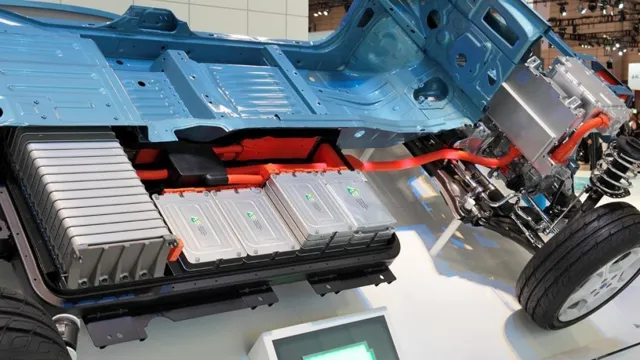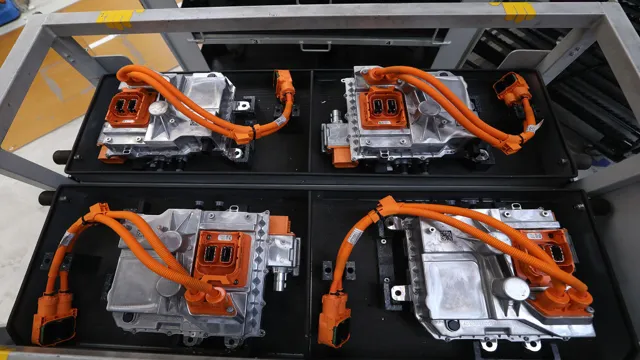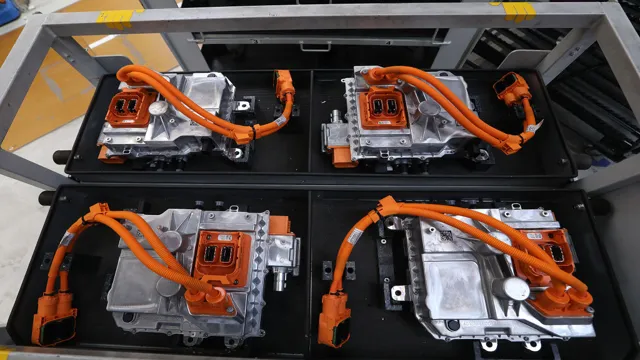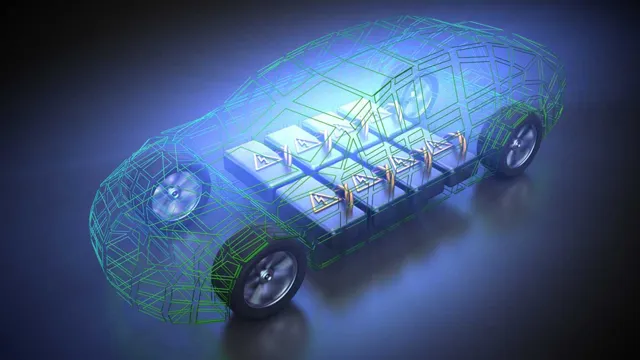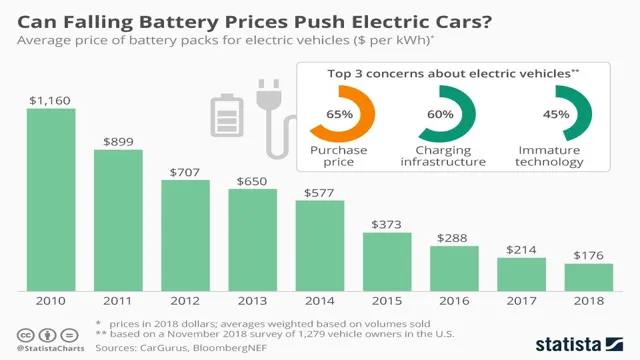Unlock the Mysteries of Electric Car Batteries: Everything You Need to Know Explained!
Electric cars are becoming increasingly popular as environmental concerns and advancements in technology drive the industry forward. But have you ever wondered how these cars run on electricity? The answer lies in the electric car battery, a complex and innovative technology that powers the vehicle. In this blog, we’ll go behind the scenes and explain the science behind electric car batteries, how they work, and the benefits and drawbacks of this innovative technology.
Whether you’re an electric car enthusiast or simply curious about how these vehicles work, you’ll gain a deeper understanding of the driving force behind electric cars. So, let’s dive in and explore the world of electric car batteries!
What are electric car batteries?
Electric car batteries are the heart of electric vehicles. They are rechargeable devices that store the energy needed for the car to run. Unlike traditional car batteries, which are mainly used to power the car’s starter motor, electric car batteries provide power to the electric motor that drives the vehicle.
Modern electric car batteries are typically made up of lithium-ion cells, which are arranged in modules, and these modules are then combined to form a battery pack. Electric car batteries can be charged using either a standard household outlet or a high-speed charging station. The battery performance is directly linked to the distance that an electric car can travel on a single charge.
Electric car batteries are constantly evolving, with new advancements being made each year to improve their performance, reduce their weight, and make them more affordable. Overall, electric car batteries are a key component to the growth and success of electric vehicles, and they play an essential role in reducing our reliance on fossil fuels.
Composition and design
Electric car batteries are responsible for storing and supplying energy to power electric vehicles. They are made up of individual cells that use chemical reactions to convert stored energy into electrical energy. These cells are connected together to form battery packs, which can vary in size depending on the vehicle’s range and power requirements.
Lithium-ion batteries are the most common type used in electric vehicles due to their high energy density, long life, and ability to recharge quickly. The cells in these batteries are comprised of a positive and negative electrode separated by an electrolyte and are housed in a protective casing. As the demand for electric vehicles continues to increase, advancements in battery technology are being made to improve performance, reduce cost, and increase range.
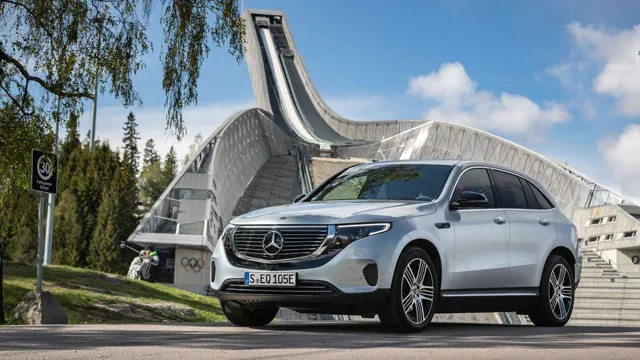
Types of electric car batteries
Electric car batteries are rechargeable devices that power electric motors, which move the vehicle’s wheels. They are the heart of an electric car and are responsible for its acceleration, range, and overall performance. There are primarily three types of electric car batteries: lead-acid, nickel-metal hydride, and lithium-ion.
Lead-acid batteries were the first to be used in electric cars, but they are gradually being phased out due to their weight, bulkiness, and limited range. Nickel-metal hydride batteries are more efficient than lead-acid batteries and have a longer lifespan, but they are still not as powerful as lithium-ion batteries. Lithium-ion batteries are the most common type of battery used in electric cars as they are lightweight, durable, and offer high energy density.
Moreover, they have become more affordable in recent years, making electric vehicles more accessible to the general public.
Factors affecting electric car batteries
Electric car batteries are a crucial component of the electric vehicle, holding the power that propels the car forward. There are a few key factors that impact the performance, maintenance, and lifespan of these valuable batteries. One of the biggest factors is temperature, as extreme hot or cold environments can negatively affect the battery’s ability to hold and maintain a charge.
Another important factor is usage patterns, as constantly discharging the battery can lead to faster degradation over time. Additionally, the type and quality of the battery cells used and the charging method can also play a role in battery performance and longevity. Making informed decisions about these factors can help ensure that your electric car battery stays strong and reliable for years to come.
Temperature
Temperature, Electric Car Batteries Temperature is a crucial factor that affects electric car batteries. The ability of batteries to hold a charge depends on the temperature. If it’s too hot or too cold, it can affect battery life and performance.
High temperatures can lead to faster degradation of the battery and reduce its longevity. When the temperature exceeds the recommended range, the battery can lose its ability to hold a charge quickly. On the other hand, when the temperature is too low, the battery’s chemical processes can slow down, and the output might drop.
Additionally, cold weather can make it difficult for the battery to start, reducing its efficiency. Therefore, maintaining the recommended temperature range for an electric car battery is key to ensuring its longevity and performance. Regular maintenance and keeping the battery within an optimal temperature range is important for the longevity of an electric car battery.
Charge level
One major factor that affects the performance of electric car batteries is the charge level. The amount of charge you have left in your battery affects how far you can go before needing a recharge. For instance, if you are running low on battery, your vehicle’s speed may drop significantly, and you might even need to pull over and recharge your battery before continuing.
Furthermore, the charge level can impact the lifespan of your electric car battery. If your battery spends too much time discharged, it can damage the cells and reduce the battery’s overall performance. Likewise, charging your battery to the maximum and keeping it there for prolonged periods can also harm the battery.
The optimal charge level for an electric car battery varies depending on its make and model, so it is essential to consult your owner’s manual. By monitoring and maintaining the right charge level for your battery, you can extend its lifespan and ensure optimal performance for your electric vehicle.
Driving behavior
When it comes to electric car batteries, driving behavior plays a huge role in how long the battery lasts and holds a charge. Some factors that can affect the battery are excessive speeding, frequent acceleration and deceleration, and driving on excessively hilly terrain. The faster you drive, the more power the battery uses, which can decrease its lifespan.
Additionally, frequent acceleration and deceleration can also wear down the battery quicker. This is because regenerative braking, which helps recharge the battery, is less effective when it’s used repeatedly. Finally, driving on hilly terrain can also use up more battery power, as the car needs more energy to climb up slopes.
Overall, it’s important to drive in a way that conserves the battery’s energy, such as maintaining a consistent speed and avoiding unnecessary acceleration and deceleration.
Benefits of electric car batteries
Electric car batteries explained: The benefits of using electric car batteries are numerous and significant. First and foremost, electric car batteries are a more sustainable and environmentally-friendly option compared to traditional gasoline-powered cars. They emit fewer greenhouse gases and pollutants, contributing to cleaner air and a healthier environment.
Electric car batteries also offer a more efficient and cost-effective way of powering vehicles. They require less maintenance and have longer lifespans, saving car owners money in the long run. Additionally, electric car batteries can be charged at home or at public charging stations, providing more convenience and flexibility for drivers on the go.
The advancements in electric car battery technology have made electric vehicles a competitive alternative to traditional vehicles, helping pave the way towards a more sustainable future for transportation.
Environmental impact
One of the benefits of electric car batteries is their positive impact on the environment. Unlike traditional gasoline-powered vehicles, electric cars emit zero emissions, reducing air pollution and greenhouse gases that contribute to climate change. Moreover, electric car batteries are recyclable, reducing the number of batteries that end up in landfills and preventing the release of toxic chemicals.
The production of electric car batteries also has a lower impact on the environment compared to the production of gasoline engines. While the production of electric car batteries does require the use of rare earth minerals, the overall environmental impact is much lower. In fact, researchers have found that the environmental impact of an electric car battery is offset by the reduced carbon emissions within two years of driving.
Overall, electric car batteries are an environmentally-friendly option that not only benefit the car owner but also the planet as a whole.
Cost savings
When it comes to electric cars, one of the biggest benefits is the cost savings associated with their batteries. Electric vehicles are much cheaper to operate and maintain than traditional gasoline-powered cars. For one thing, electric cars have fewer moving parts, which means fewer things that can break down and require expensive repairs.
Additionally, the cost of electricity is generally lower than that of gasoline, so you’ll save money at the pump. Moreover, many electric cars are eligible for government incentives, which can reduce the upfront cost of purchasing a new vehicle. In the long run, owning an electric car can save you thousands of dollars in fuel and maintenance costs.
So if you’re looking for a way to reduce your environmental impact while also saving money, an electric car might be the right choice for you.
Future of electric car batteries
Electric car batteries have come a long way in recent years, and the future looks even brighter. These batteries are the lifelines of electric vehicles, providing them with the power they need to run smoothly. As technology continues to advance, the electric car batteries are also becoming more advanced and efficient.
The latest batteries on the market are more compact, lightweight, and capable of holding a charge for a longer period. Future battery innovations will include solid-state batteries, which have the potential to revolutionize the electric car industry. These batteries will be safer, more reliable, and can hold more charge than conventional lithium-ion batteries.
While it may take some more time for these new batteries to become affordable and easily accessible, it is only a matter of time before they become the norm. As a result, electric cars will become more affordable and practical for people all over the world, bringing us closer to a cleaner and more sustainable future.
Conclusion
In conclusion, electric car batteries are the unsung heroes of the green transportation revolution. They may not be as flashy as a Tesla Model S or as timeless as a vintage Mustang, but they are the key to unlocking a sustainable future for all of us. Don’t let their technical jargon and complex chemistry scare you away – these batteries are tough, efficient, and ready to power the cars of tomorrow.
So next time you see an electric car zooming past, remember that its battery is the real MVP. Without it, we would still be stuck in the age of combustible engines and greenhouse gas emissions. Let’s give credit where credit is due and raise a toast to the humble electric car battery.
Cheers!
FAQs
What are electric car batteries?
Electric car batteries are rechargeable batteries used to power electric vehicles. They store electricity that is used to power the electric motor.
How do electric car batteries work?
Electric car batteries work by storing electrical energy and converting it into kinetic (movement) energy. This involves the use of chemicals that are stored within the battery, which are then used to generate electricity.
How long do electric car batteries last?
The lifespan of an electric car battery can vary depending on the brand and model of the car, as well as how often it is used. Typically, electric car batteries last for around 8-10 years and can cover a distance of 100,000 to 200,000 miles.
How are electric car batteries charged?
Electric car batteries can be charged using either a public charging station or a home charging station. Both of these stations use a charging cable to connect the car to a power source. The battery can also be charged using regenerative braking, which occurs when the car slows down and converts the movement of the wheels into energy that is stored in the battery.

